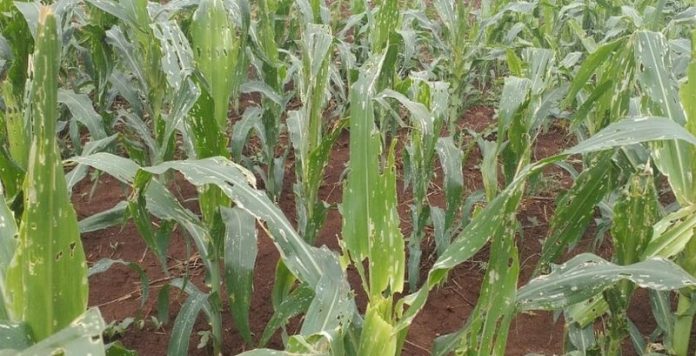In Embu County, small-scale maize farmers have found a simple but effective way to deal with the fall armyworm—using their own hands instead of spending on expensive pesticides.
Agnes Waithira Muli, one of the farmers, used to lose nearly all her harvest to the pest. Things changed when she got training from field scouts. These days, she inspects her maize fields twice a day, picking out caterpillars and eggs before they can spread.
“I now know how to handle them early. That means we lose less,” she said.
Agnes and her husband had planted an acre of maize but still harvested four 90kg bags, even with the pest invasion. For her, that was a win compared to losing everything.
“With a good harvest, we have enough for the family and even something small to sell,” she added.
Afande Moses: Influencer shares how he earned Sh460,000 from maize
The training came through a program supported by the Food and Agriculture Organization (FAO), which helped train community scouts to guide farmers like Agnes.
These scouts taught them how to detect early signs of infestation and how to control it using simple, manual methods.
Salesio Mugo, another farmer from the area, said this season was different. After trying the manual approach, he managed to harvest two full 90kg bags of maize from just a quarter of an acre. In previous seasons, he harvested nothing.
“This is better than spraying. I just wake up early, check my crops, and remove the worms before they spread,” he said.
The scouts also earned something for their time. Petronila Wanjira Njeru, one of them, used her earnings to buy 27 chickens and even a dairy cow.
While the method may seem time-consuming, it’s working. These farmers are no longer relying on chemicals—they’re relying on themselves. And for many of them, that’s the beginning of real change.
“This approach has given us back control,” said Agnes. “We may not have much, but now we know how to protect what we have.”









